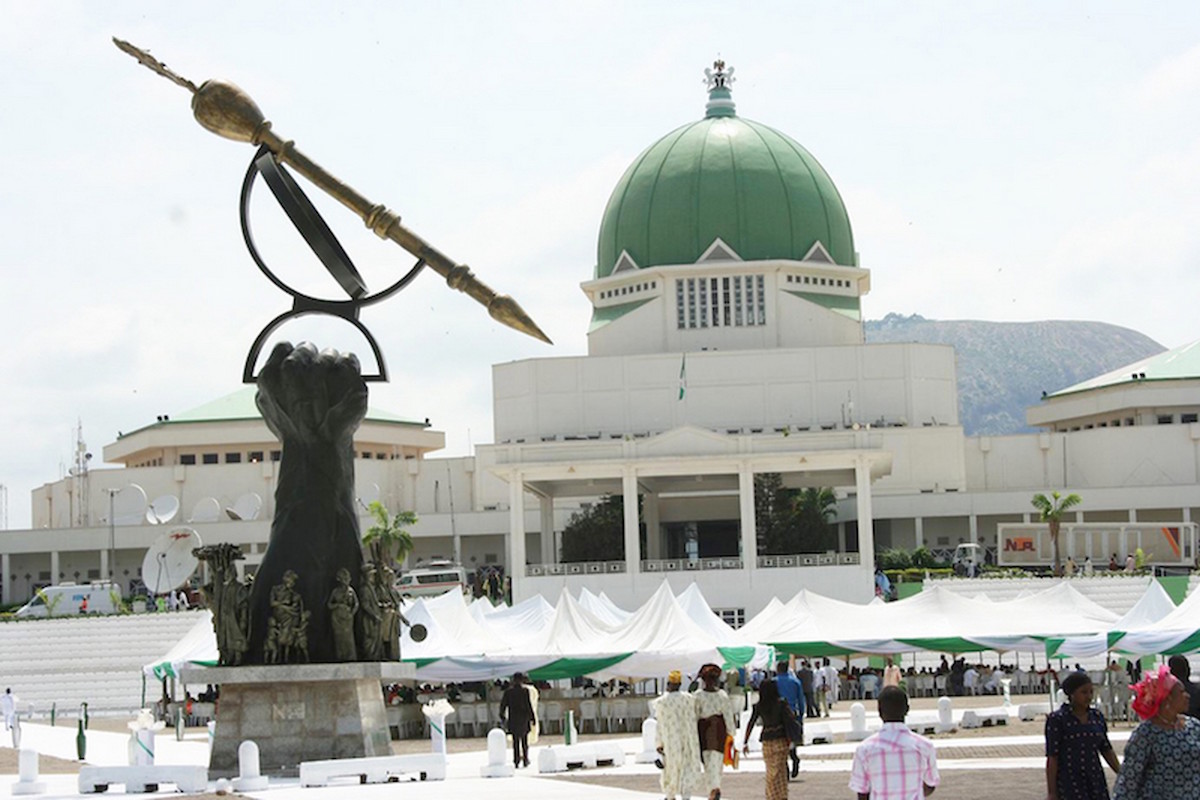Is the forthcoming Tenth National Assembly (2023–2027) manifesting to be another rubber stamp talk shop, on whom the nation’s hope of enjoying good governance shall be in vain? This is the question on the lips of many compatriots who nurse mixed feelings over the pre-inauguration political maneuvers that are swirling around, in the name of selecting the leadership of the Senate and House of Representatives of the National Assembly.
Even before – and in the course of the ongoing orientation of the incoming members of the National Assembly, what has seemingly been the main concern of the political class, remains who takes what position in the leadership structure of the institution. And this trend has been to the exclusion of what the country hopes to benefit in terms of sustainable changes and improvements in the process of governance, from the advent of the Tenth National Assembly, which is due for inauguration on June 5th 2023.
Against the backdrop of the abysmally low performance of the outgoing Ninth National Assembly there is significant expectation that the incoming Tenth National Assembly should initiate tangible remediation for the wide scope of deficit from its predecessor. But that may be a dashed hope given the current trend of concerns and interests of the leading lights of the incoming legislature.
For instance, the process of emergence of leadership of the two chambers of the National Assembly has featured debates over zoning of offices as well as the choice of individuals to benefit from the zoning. In this context has been of significant interest, the office of the President of the Senate. This is not surprising given the functions of the Senate.
The Braimoh STAT agenda for Kogi State
Restructuring ministries of education and science: Memo to President-elect
Beyond the fact of sharing several powers including that of the purse with the House of Representatives, the Senate has the exclusisve power of confirming ministers and other officials for the President. The Senate President also serves as the Chairman of the National Assembly at joint sessions and other collective activities. This is where the subservience of the Senators in the choice of their leaders to the proclivities of just one political party out of several remains a matter of concern.
While it is not out of place for the incoming legislators to jostle for positions in the institution’s hierarchy, the problem lies in the opportunity cost to the country which manifests in the scant premium with respect to attention which such enterprise allows for the main business of the legislature – being the triple tasks of constituency representation, law making and oversight of government business, in respect of which the laws are made in the first place.
In that context therefore falls the situation where not only is the predilection of the ruling All Progressives Congress (APC), to assert total control of the legislature, constitutes a source of exclusion of valuable contributions from other poli’tical parties towards good governance. It also constitutes the Appian Way to predisposing the entire National Assembly to a rubber stamp organ of the party and the executive as well. For whereas the executive arm may be disposed constitutionally to man its offices exclusively with its party members, the legislature is intended by the same Constitution to provide for balance in participation by as many political parties with elected membership in it. Just as the cliche goes that ‘variety is the spice of life’, so the multiplicity of parties in the business of the legislature constitute the very driving force of credible enterprise in the presidential system that is operational in Nigeria.
It should therefore be seen as undemocratic that a single party no matter its strength in the Tenth National Assembly should dictate the choice of leaders for a the respective chambers. The offices should be throw open to as many aspirants that qualify for serving in such capacities. It is even a shame that while the expectation of zoning constitutes a disturbing factor in the promotion of internal democracy in political parties, it is enjoying the status of an article of faith in the country’s central legislature which should constitute the very crucible of democracy.
For instance, the ongoing tussle for leadership has thrown up individuals who have been parading vested parochial interests, rather than burning issues which had long been identified as the weaknesses of the country’s legislative arm of government. The first area of concern is the dominance of the ruling party to muzzle every theatre and speck of power in the federal legislature into its embrace. This fits into the dubious doctrine of ‘winner takes all’ – a maxim which encourages the formal policy of exclusion of sections of the country from benefitting from the common patrimony. Of all the factors of debilitation of national cohesion, nothing matches this with respect to impacting negatively on the country. It is on record that on of the major sins of the outgoing Ninth National Assembly was the imposition of the leadership of both the Senate and the House of Representation with the duo of Ahmed Lawan and Femi Gbajabiamila respectively by the APC which was then under Adams Oshiomole as National Chairman.
This dispensation led to the yoking of the Ninth National Assembly to the apron strings of the APC in the context of which it served as an extension of the party and a mere appendage of the executive arm. Hence even when national interests fell into opposite directions from those of the APC and the government in power, the National Assembly favoured the ruling party. Instances where such anomalous tendencies manifested are legion. Yet most poignant is the fact that there are clear differences between national, government’s and political party’s interests.
From the trending circumstances, unless drastic changes take place, the incoming administration may not manifest significant changes from the outgoing one, given the emerging orientation of the Tenth National Assembly, just as ‘old wine in new wineskins’, may not taste better.

 Join Daily Trust WhatsApp Community For Quick Access To News and Happenings Around You.
Join Daily Trust WhatsApp Community For Quick Access To News and Happenings Around You.



